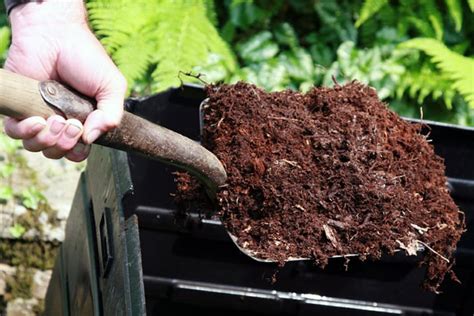The Ultimate Guide to Balcony Composting: Creative Strategies for Sustainable Gardening
Balcony composting is an innovative solution for urban gardeners looking to reduce waste, enrich soil, and grow healthier plants even with limited space. Whether you’re a seasoned gardener or a beginner, the right composting strategies can make your balcony garden a thriving oasis of sustainability. In this guide, we’ll explore the best strategies for balcony composting, the key concepts involved, practical applications, and the ethical considerations that come with it. This comprehensive article will cover everything from historical composting techniques to future innovations in urban sustainability.
Introduction
Living in an apartment with a balcony doesn’t mean you can’t contribute to environmental sustainability through composting. In fact, balcony composting offers a practical way to manage organic waste, improve soil quality, and support healthy plant growth. This guide will provide you with creative strategies that balance both space limitations and efficiency, offering a complete solution to turning your kitchen scraps into nutrient-rich compost without attracting pests or causing unpleasant odors.
Key Concepts
- Aerobic Composting: A process where microorganisms break down organic materials in the presence of oxygen, producing compost more quickly and with less odor.
- Bokashi Composting: A fermentation-based composting technique that works well in tight spaces, breaking down food waste through anaerobic fermentation using specific microorganisms.
- Vermiculture: The use of worms to decompose organic matter, which can be ideal for a balcony setting due to its contained nature and rapid composting capabilities.
- Carbon-to-Nitrogen Ratio: Balancing carbon-rich “browns” (e.g., dry leaves) and nitrogen-rich “greens” (e.g., food scraps) is crucial to ensuring your compost decomposes efficiently.
- Leachate: A liquid that drains from compost and can be used as a potent fertilizer for plants when diluted properly.
Historical Context
Composting dates back thousands of years to ancient civilizations like the Romans, Egyptians, and Chinese who used decomposed organic materials to improve soil fertility. In the modern era, composting became more formalized in agricultural practices during the 20th century, particularly with the advent of large-scale industrial farming. However, as urbanization expanded, traditional composting methods had to be adapted to fit smaller spaces, leading to innovations such as vermiculture and Bokashi composting.
Current State Analysis
Today, balcony composting has gained popularity as people become more eco-conscious and seek out sustainable practices in urban environments. Governments and organizations increasingly encourage composting as part of zero-waste initiatives. However, many people still face challenges such as limited space, odor management, and pest control, which can make balcony composting seem daunting. Technological advancements and creative designs, like compost tumblers and odor-proof bins, are addressing these issues, making balcony composting more accessible than ever.
Practical Applications
To successfully implement balcony composting, follow these practical tips:
- Choose the Right Composting Method: For balconies, options like vermiculture or Bokashi composting are ideal because they require less space and are easy to manage.
- Control Odors and Pests: To prevent unwanted smells or pests, ensure your compost is well-aerated, and use a sealed container if opting for Bokashi. Regularly monitor moisture levels to avoid anaerobic conditions.
- Use Organic Waste Efficiently: Focus on adding vegetable peels, coffee grounds, eggshells, and dry leaves to maintain the right carbon-to-nitrogen balance.
- Place Your Bin Strategically: Position your composting setup in a shaded area of your balcony to avoid excessive heat, which can accelerate decomposition too quickly.
- Harvest and Use Compost: Once your compost has matured, use it to enrich the soil of your balcony garden or share it with community gardens.
Case Studies
| Case Study | Location | Composting Method | Outcome |
|---|---|---|---|
| Urban Balcony Composting | New York City | Bokashi | Successfully reduced food waste and enriched garden plants with minimal odor issues. |
| Small Balcony Vermiculture | San Francisco | Worm Bin | Efficiently produced compost with little maintenance and no pest problems. |
| Composting for Community Gardens | Berlin | Traditional Aerobic | Utilized community compost bins to contribute to local gardens. |
Stakeholder Analysis
Balcony composting benefits multiple stakeholders:
- Urban Gardeners: Composting reduces waste and improves the quality of soil for plants.
- Municipal Waste Systems: Reducing organic waste sent to landfills lightens the burden on waste management services.
- Local Communities: Compost sharing programs promote sustainability and build community engagement.
- Environmental Advocates: Composting contributes to broader sustainability goals like reducing methane emissions from landfills.
Implementation Guidelines
To implement a balcony composting system, follow these guidelines:
- Select a Suitable Container: Use a compact, air-tight bin for Bokashi or a worm bin for vermiculture.
- Monitor Carbon-to-Nitrogen Ratio: Keep a balanced mix of “browns” and “greens” for optimal decomposition.
- Maintain Moisture Levels: Compost should be damp but not soaking wet. Too much moisture can cause anaerobic conditions.
- Use Odor-Control Techniques: Add a layer of sawdust or shredded newspaper to absorb excess moisture and odors.
Ethical Considerations
Balcony composting presents some ethical questions, such as the responsibility of managing organic waste in a way that doesn’t negatively impact neighbors or attract pests. Practitioners must be considerate of communal living spaces and avoid practices that could cause public health concerns.
Limitations and Future Research
While balcony composting offers significant environmental benefits, it also has limitations, such as space constraints and the potential for odors. Future research could focus on improving odor control technologies and developing compact, automated composting systems tailored for small urban environments.
Expert Commentary
Experts agree that balcony composting is a sustainable practice with numerous benefits for urban gardeners. However, success depends on selecting the right method, managing the composting process properly, and considering the needs of the surrounding community. The future of composting lies in more accessible, tech-driven solutions that make it easier for urban dwellers to participate in waste reduction efforts.


